The role of trade and investment liberalization in the sugar-sweetened carbonated beverages market: a natural experiment contrasting Vietnam and the Philippines
- PMID: 26455446
- PMCID: PMC4601146
- DOI: 10.1186/s12992-015-0127-7
The role of trade and investment liberalization in the sugar-sweetened carbonated beverages market: a natural experiment contrasting Vietnam and the Philippines
Abstract
Background: Trade and investment liberalization may facilitate the spread of sugar-sweetened carbonated beverages (SSCBs), products associated with increased risk factors for obesity, type II diabetes, and cardiovascular diseases (Circulation 121:1356-1364, 2010). Apart from a limited set of comparative cross-national studies, the majority of analyses linking liberalization and the food environment have drawn on case studies and descriptive accounts. The current failure of many countries to reverse the obesity epidemic calls for investigation into both individual and systemic factors, including trade and investment policies.
Methods: Using a natural experimental design we tested whether Vietnam's removal of restrictions on foreign direct investment (FDI) subsequent to its accession to the World Trade Organization in 2007 increased sales of SSCBs compared with a matched country, the Philippines, which acceded in 1995. Difference-in-difference (DID) models were used to test pre/post differences in total SSCB sales and foreign company penetration covering the years 1999-2013.
Results: Following Vietnam's removal of restrictions on FDI, the growth rate of SSCB sales increased to 12.1 % per capita per year from a prior growth rate of 3.3 %. SSCB sales per capita rose significantly faster pre- and post-intervention in Vietnam compared with the control country the Philippines (DID: 4.6 L per annum, 95 % CI: 3.8 to 5.4 L, p < 0.008). Vietnam's increase in SSCBs was primarily attributable to products manufactured by foreign companies, whose annual sales growth rates rose from 6.7 to 23.1 %, again unmatched within the Philippines over this period (DID: 12.3 %, 95 % CI: 8.6 to 16.0 %, p < 0.049).
Conclusions: Growth of SSCB sales in Vietnam, led by foreign-owned companies, significantly accelerated after trade and investment liberalization.
Figures
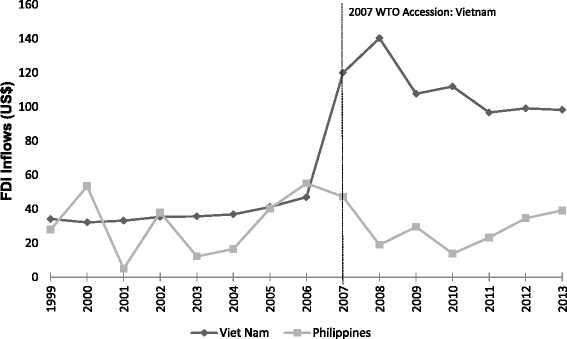
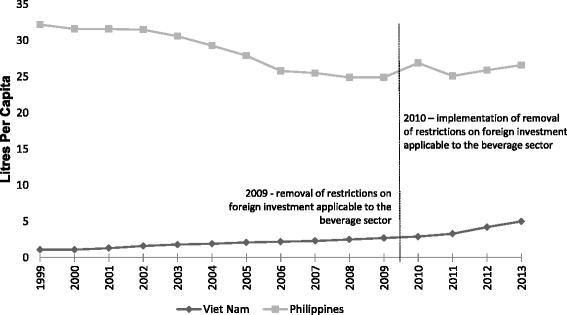
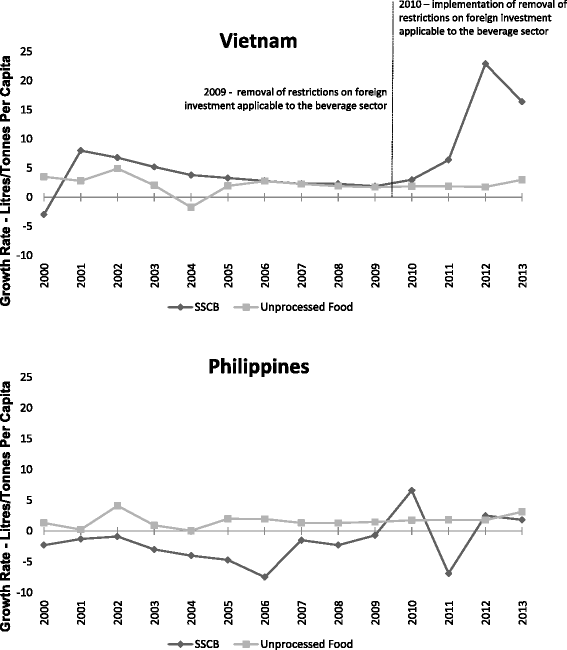
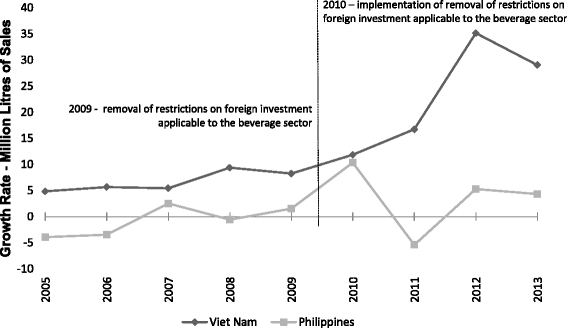
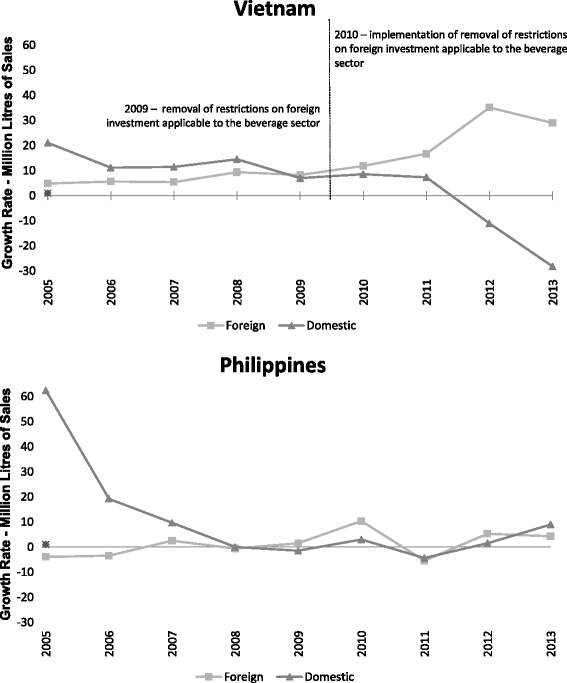
References
Publication types
MeSH terms
Substances
Grants and funding
LinkOut - more resources
Full Text Sources
Other Literature Sources

